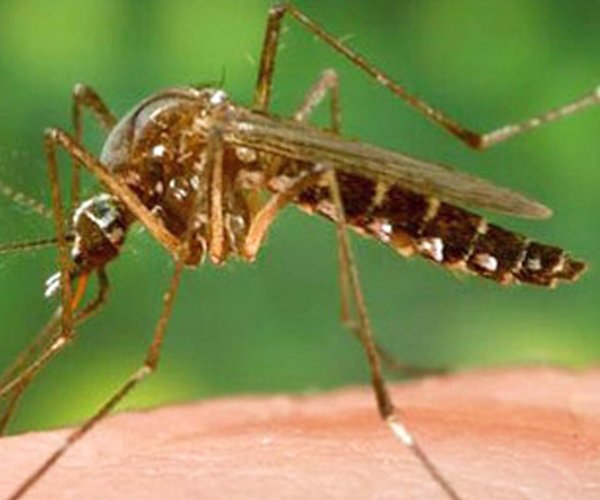The arrival of summer and the warm days and nights is ushering in the reemergence of the West Nile Virus, with mosquito samples testing positive.
The Turlock and East Side mosquito abatement districts reported six mosquito samples have tested positive for the virus in Stanislaus County. As of yet there have been no confirmed cases of the virus in humans or any positive results from dead birds.
As of June 22, there are 14 counties in California that have confirmed West Nile Virus activity, with two human cases, 25 dead birds, and 157 mosquito samples.
This has been a prolific year for mosquito breeding because of the increased rains, widespread flooding, recent high temperatures and now the snow melting.
“Increased temperatures will hasten the development of West Nile Virus in the Central Valley,” said Turlock Mosquito Abatement District General Manager David Heft. “That coupled with river flooding due to snow melt could have a major impact on mosquito-borne disease transmission. We urge residents to use repellents when outside in the dawn and dusk hours.”
The mosquito abatement districts will continue with mosquito surveillance and control activities in the county. Residents are urged to play their part by eliminating standing water on their property and informing their local mosquito abatement district if they are being bitten by mosquitoes.
Mosquitoes like to breed in stagnant water, preferring weedy areas that provide cover. The lagoons at dairy farms make for perfect breeding grounds, but so do flooded fields, uncared for swimming pools, urban catch basins, overwatered lawns, and pretty much anything that holds water and allows it to stagnate.
Mosquitoes become infected with West Nile Virus when they feed on infected birds. Infected mosquitoes can then spread West Nile Virus to humans and other animals when they bite, according to the Centers for Disease Control.
Approximately 1 in 5 people who are infected with West Nile virus will develop symptoms such as fever, headache, body aches, joint pains, vomiting, diarrhea, or rash. Less than 1 percent will develop a serious neurologic illness such as encephalitis or meningitis (inflammation of the brain or surrounding tissues). About 10 percent of people who develop neurologic infection due to West Nile virus will die, according to the CDC. People over 50 years of age and those with certain medical conditions, such as cancer, diabetes, hypertension, kidney disease, and organ transplants, are at greater risk for serious illness.
There are no medications to treat or vaccines to prevent West Nile Virus infection. People with milder illnesses typically recover on their own, although symptoms may last for several weeks or months. In the neuroinvasive forms, patients can suffer severe and sometimes long-term symptoms.
A 2015 CDC report indicates that for every one diagnosed case of West Nile Virus another 150 people have the disease and are either undiagnosed or misdiagnosed.
People 50 years of age and older, and individuals with diabetes or hypertension, have a higher chance of getting sick and are more likely to develop complications.
CDPH recommends that individuals protect against mosquito bites and WNV by practicing the “Three Ds”:
1. DEET – Apply insect repellent containing DEET, picaradin, oil of lemon eucalyptus or IR3535 according to label instructions. Repellents keep the mosquitoes from biting you. Insect repellents should not be used on children under two months of age.
2. DAWN AND DUSK – Mosquitoes usually bite in the early morning and evening so it is important to wear proper clothing and repellent if outside during these times. Make sure that your doors and windows have tight-fitting screens to keep out mosquitoes. Repair or replace screens that have tears or holes.
3. DRAIN – Mosquitoes lay their eggs on standing water. Eliminate all sources of standing water on your property, by emptying flower pots, old car tires, buckets, and other containers. If you know of a swimming pool that is not being properly maintained, please contact your local mosquito and vector control agency.
Residents are urged to continue to report dead birds to the WNV State Hotline: 1-877-968-2473.
Reports may also be made online at www.westnile.ca.gov. Dead bird reports are an important
tool for West Nile Virus detection, even if the bird is not picked up and tested. Lack of dead bird
reports decreases the ability to detect higher risk locations. There are two mosquito abatement districts to serve residents in Stanislaus County. Residents north of the Tuolumne River contact the Eastside Mosquito Abatement District at (209) 522-4098. Residents south of the Tuolumne River should contact the Turlock Mosquito Abatement District at turlockmosquito.org or (209) 634-1234.





